Students and volunteers expand McMaster Carbon Sink Forest
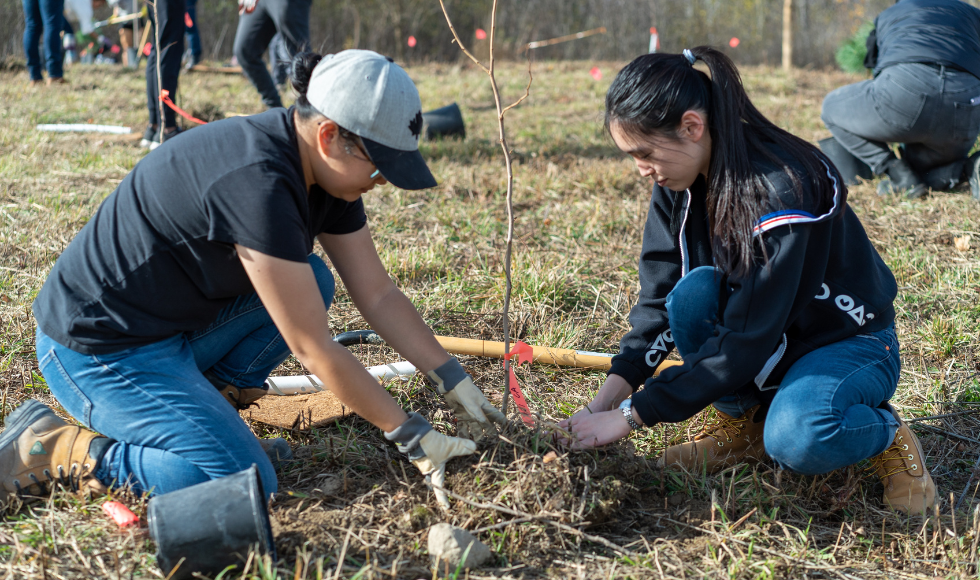
More than 125 people planted 300 trees in the living lab that also serves as a research project.
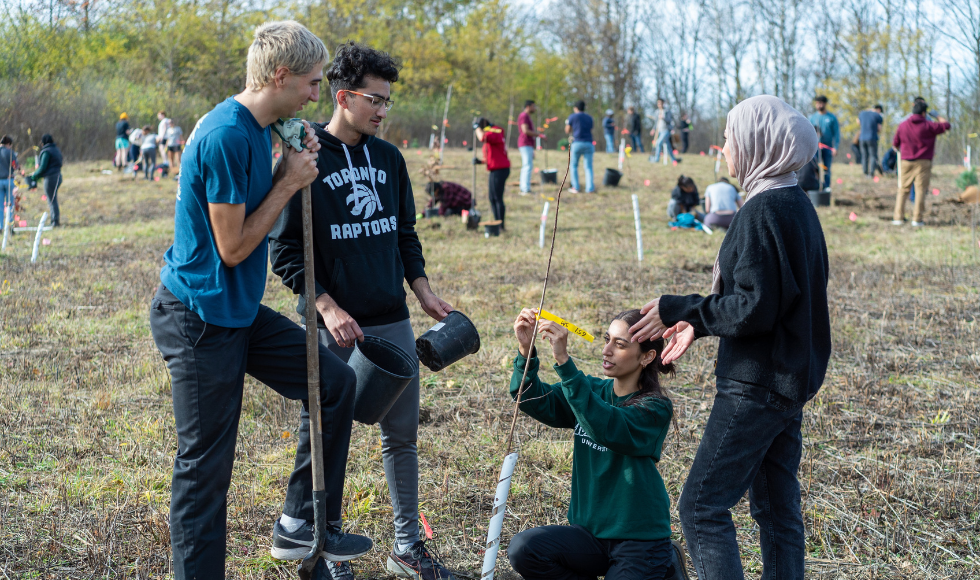
More than 125 students and community volunteers, including university President David Farrar and more than two dozen medical students and residents, grew the McMaster Carbon Sink Forest by another 300 trees this weekend.
The model forest, which serves as a research project, demonstration site and outdoor classroom, will be completed with a fourth and final tree-planting next spring.
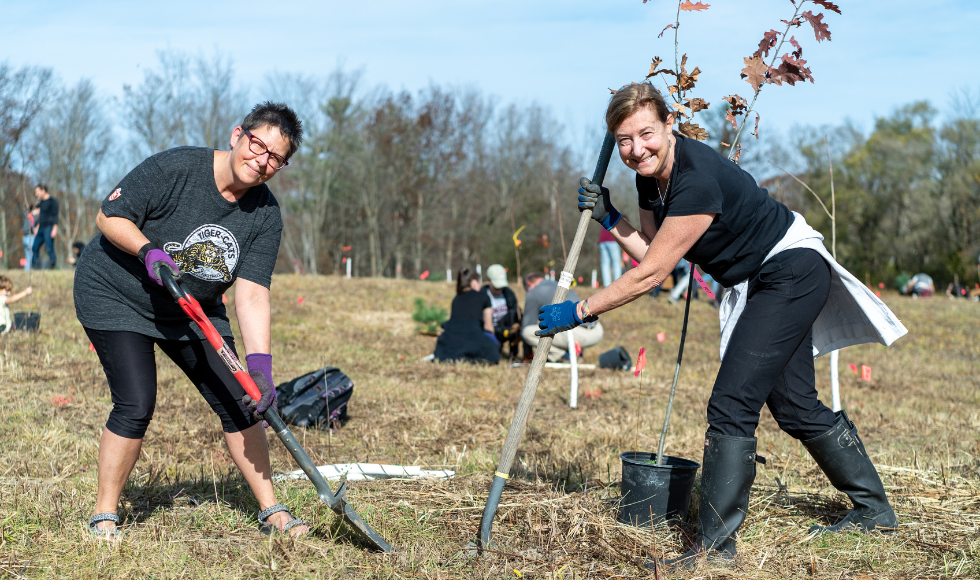
The McMaster Carbon Sink Forest in West Hamilton is the latest research initiative by the McMaster Centre for Climate Change. The centre, led by Professor Altaf Arain from the Faculty of Science, continuously monitors how much carbon dioxide is being pulled out the atmosphere by each tree.
That data, along with the centre’s experience in growing the forest, will be shared with researchers across Canada and around the world who are growing similar forests to help mitigate the impacts of climate change.
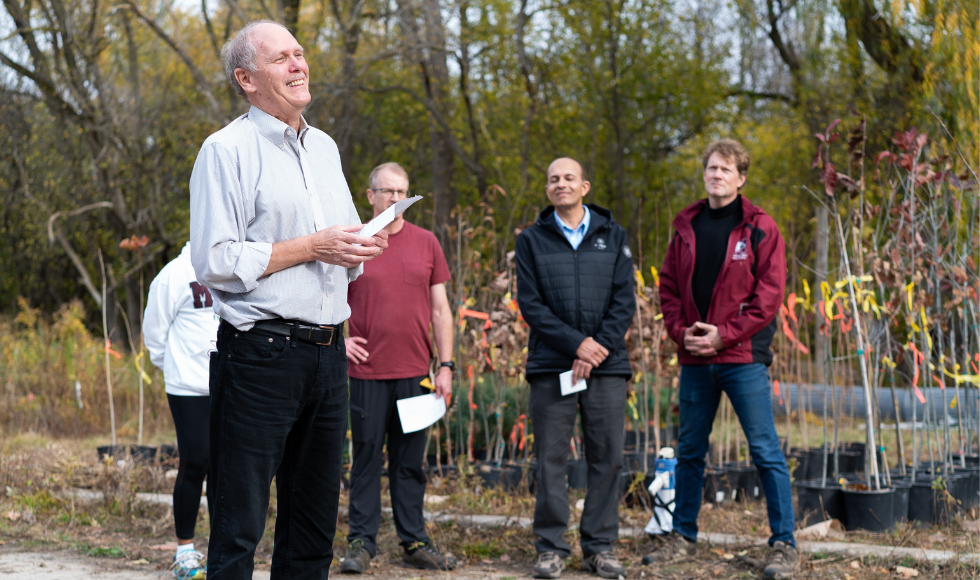
“The McMaster Carbon Sink Forest is one of many exciting new initiatives that exemplify McMaster’s deep commitment to sustainability,” President David Farrar says.
“Innovative projects like this are key to advancing our goal of a carbon free campus, and to supporting our responsibility to address the United Nations’ Sustainable Development Goals across disciplines, faculties and units.”
The McMaster Carbon Sink Forest is supported by Trees for Hamilton, Trees for Life, Nature at McMaster and the Academic Sustainability Programs Office. The forest is growing on one hectare of land provided by environmentalists.
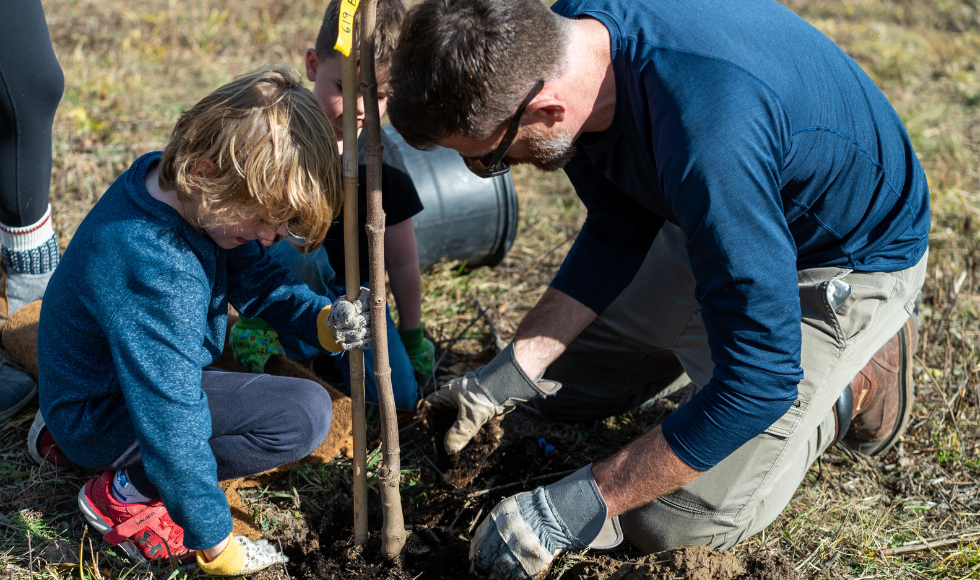
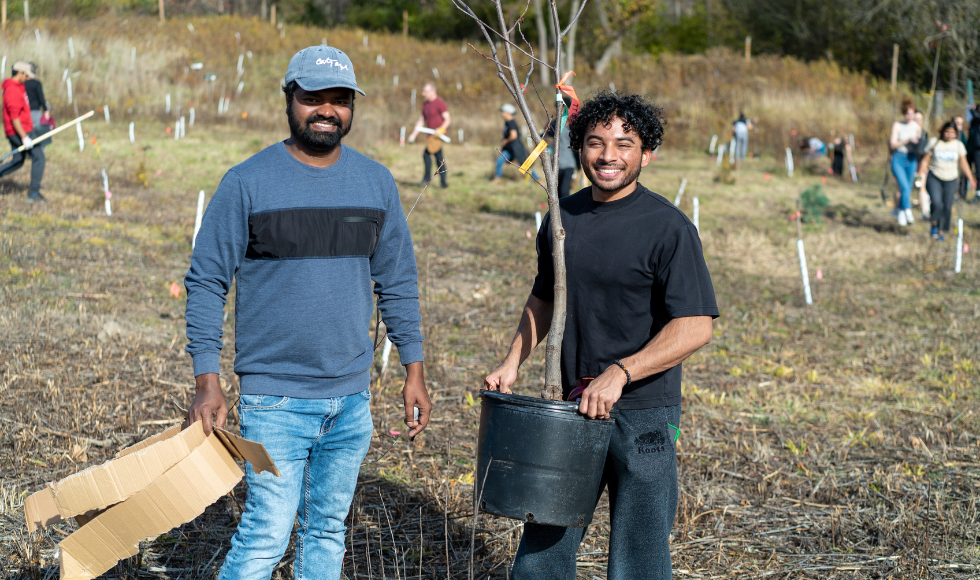
“We are incredibly grateful to all our partners and volunteers who have been involved with the McMaster Carbon Sink Forest right from the planting of our very first tree,” says Arain. “Together, we are part of an important environmental research project with national and international significance.”
Trees for Hamilton is proud to supply the trees being planted in the McMaster Carbon Sink Forest, says co-founder and president Myles Sergeant.
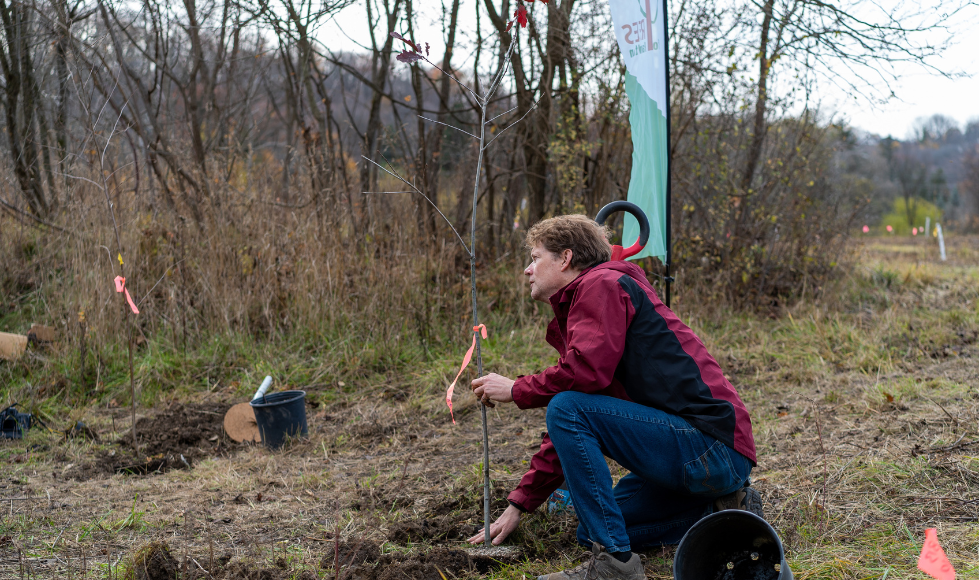
“Our mission is to plant native trees and improve long-term health of everyone living in our community,” says Sergeant, a family physician and director of the Medically Complex Care Program at St. Peter’s Hospital, who recruited 25 medical students and residents to join him in planting trees.
“By donating trees to the McMaster Carbon Sink Forest, we have a unique opportunity to expand our mission and help improve the health of communities across Canada and around the world.”
The forest is also serving as a living lab and outdoor classroom for students from across McMaster.
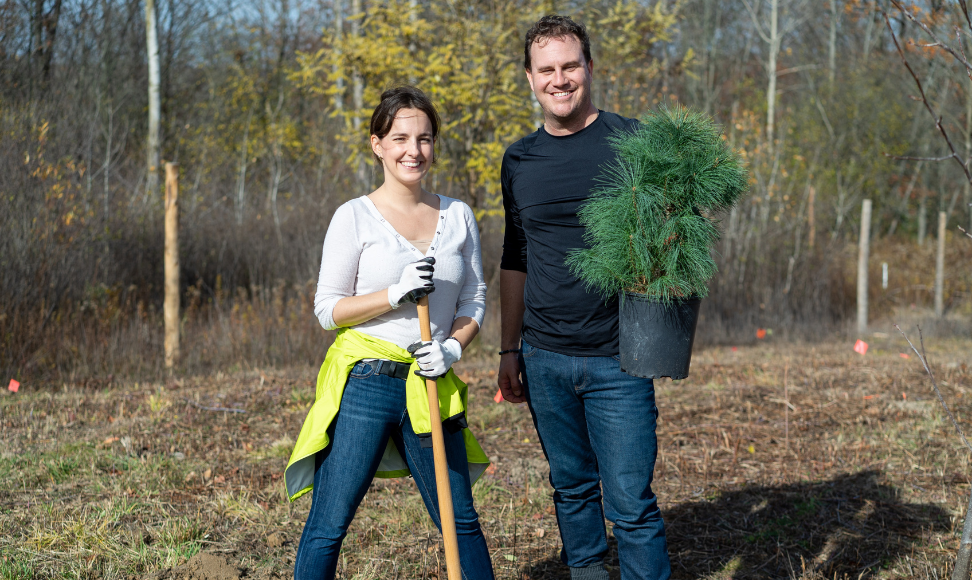
“It was an incredible feeling to get our hands dirty with fellow students, staff, faculty and community members and plant trees to better the future of the Hamilton community,” says Sama Hameed, a Life Sciences student enrolled in SUSTAIN 3S03.
“This has been the most hands-on course I’ve taken at McMaster.”
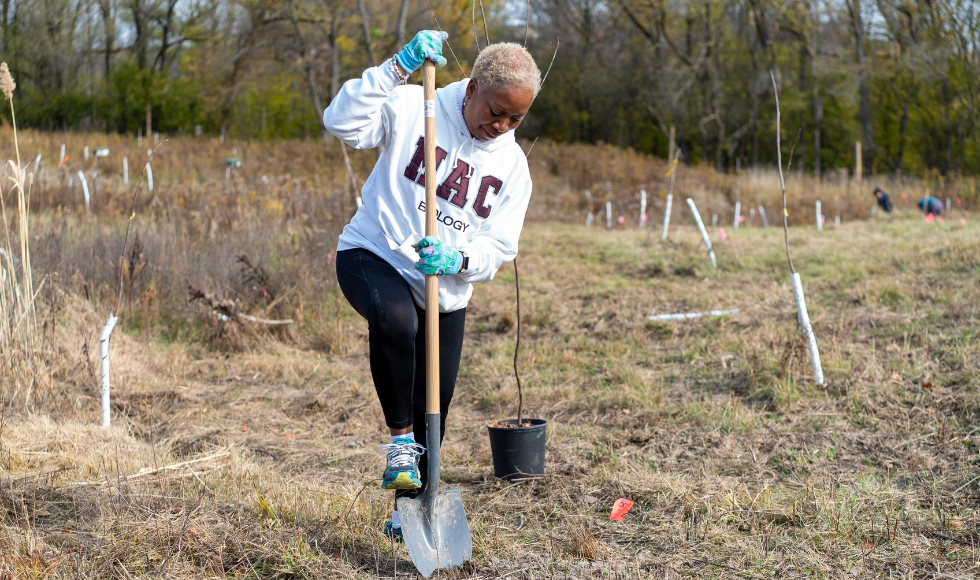
The first trees were planted in the McMaster Carbon Sink Forest a year ago, followed by a second community tree-planting to celebrate Earth Day in March. A fourth and final tree-planting event is planned for next spring.
The McMaster Carbon Sink Forest, along with the Hamilton Tree Equity Project, received the university’s 2022 Climate Change & Health Innovation Awards.

